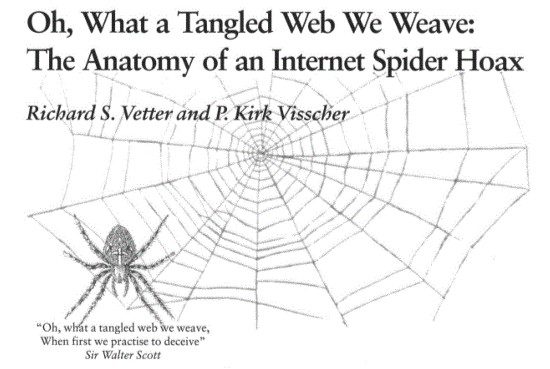“The true fix is education.” That’s the final word in this helpful-but-frustrating piece by David Klepper for the Associated Press, “Viral thoughts: Why COVID-19 conspiracy theories persist.”
It’s not really a “why” article, but a “how” article — report focused on how to correct misinformation and to stop its spread. Klepper gives the last word to “Helen Lee Bouygues, founder and president of the Paris-based Reboot Foundation, which researches and promotes critical thinking in the internet age.” Bouygues is smart and insightful, and it sounds like her Reboot Foundation is doing good and useful work. But I think the premise of her final statement in Klepper’s report is incorrect:
“The true fix is education,” said Bouygues. “COVID has shown us how dangerous misinformation and conspiracy theories can be, and that we have a lot of work to do.”
Education is a Good Thing. It is the “true fix” for some problems — namely for the problems of a lack of education or a lack of information. But those aren’t the problem here. People don’t get involved in conspiracy theories because of a lack of education or because of a lack of information or a lack of access to good and trustworthy information.
Klepper also endorses the apparent expert consensus that “Teaching critical thinking and media literacy … is essential.” And that’s true — it is essential and also a Good Thing. But it’s another Good Thing that does not directly address or “fix” the problem of why people get caught up in conspiracy theories and how to prevent that from happening.
It’s not a “problem” of a lack of information that better information and better education will “fix.” Nor is it a problem of faulty logic or a lack of critical thinking that rational, logical argumentation will fix. It’s an ethical problem. It’s about the choices people are making. It’s about people who have access to both good and bad information and who already possess all of the cognitive and rational capabilities that allow them to distinguish one from the other, yet who still choose to prefer the bad information over the good.
It’s a moral failure, not a mental one.
This is why the story is about Bad Jackie versus Good Jackie, not about ignorant, uneducated Jackie versus Dr. Jackie, Ph.D. in Critical Thinking. The kind of education that can address this — I don’t like the word “fix” here — is not one that focuses on information or even on the kind of critical thinking skills that allow us to sort out valid information from misinformation. It is, rather, the kind of education that teaches us to choose, and to want to choose, to be the kind of people who prefer valid information to misinformation.
I’m not dismissing the importance of either education or critical thinking, but these are insufficient. You’ve probably already learned that yourself through the frustrating experience of directing a friend or relative to a Snopes debunking of some legend, hoax, or conspiracy theory only to have that person reject — and resent — the information provided. And you’ve probably had this happen even with a friend or relative who was otherwise well-educated and intelligent. Because neither education nor critical thinking is “the true fix.” It’s not about what they know, but about what they’re choosing to claim to believe.
In our parable about Jackie, this is illustrated with the hoary internet legend of the butt-biting airport spiders. That legendary hoax was also the subject of an academic article more than 20 years ago in American Entomologist.* The authors — professors in the University of California Riverside’s spider research lab — got in contact with the author of one popular iteration of that hoax and describe his motives here:
The hoax was purposely filled with incorrect information such that if the reader checked into any bit of the information, a red flag would arise because there would be no credibility to the citation of information (no medical journal with that name, there is no spider named Arachnius, there is no Blare Airport, etc.). He wrote the hoax to show that 1) people are gullible, 2) that the internet is a frighteningly fast way to spread misinformation, 3) that people forward on information without checking the veracity of the information. He never expected this to spread so quickly and so widely.
“Gullible” is a word we often use to describe people who choose to accept even obviously incorrect information, but that’s not quite accurate. Gullibility suggests an innocent susceptibility to deception, but deception is not what’s happening — either here or with the conspiracy theories involving the pandemic. This deliberately incredible hoax was not created to deceive people, but to provide them with the choice of pretending to accept it. Those who make that choice then “forward on information without checking” not out of laziness or a lack of critical thinking and due diligence, but because they know or suspect what such due diligence would reveal. Because they know that “checking” would spoil the fun.
And so they “forward on information without checking” — which is to say they bear false witness to and against their neighbors — as a way of doubling-down on that initial choice to prefer the bad information to the good. The failure is not a lack of education or a lack of critical thinking. The failure is moral — it’s in the choosing.
It’s always in the choosing.
* No, spiders are not technically insects, but UCR’s spider research lab is still part of its entomology department. One of those authors, Richard S. Vetter, even earned a pseudo-prestigious Ig Nobel Prize last year for another American Entomologist article related to that: “Arachnophobic entomologists: when two more legs makes a big difference.”











